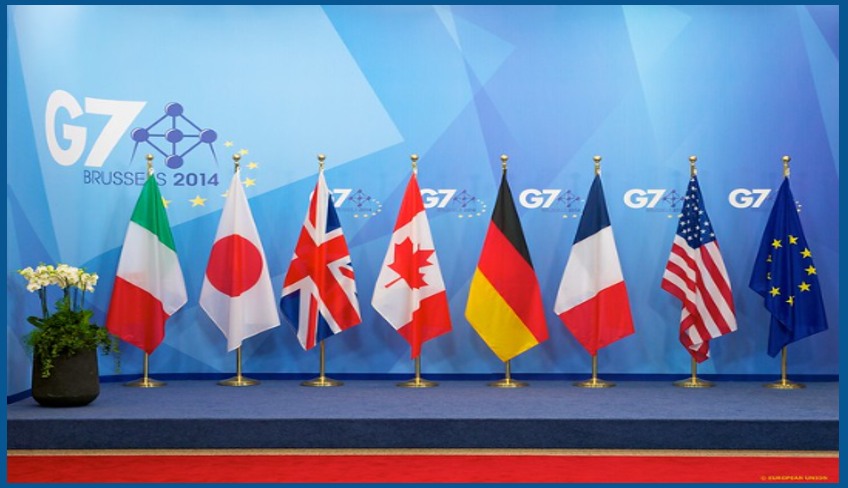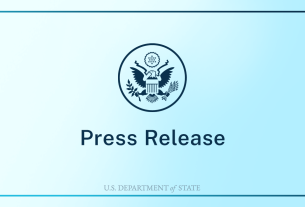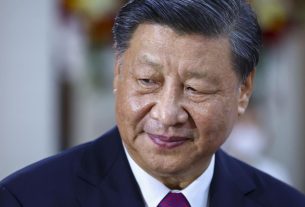BANFF, Alberta – Finance ministers and central bank governors from the Group of Seven (G7) nations wrapped up three days of talks on Thursday with a united front on global economic issues, despite sidestepping sharp divisions over U.S. tariffs and the war in Ukraine.
Meeting in Canada’s Rocky Mountains, G7 officials released a communique pledging to tackle “excessive imbalances” in the global economy and explore tougher sanctions on Russia. However, the document was notably devoid of language on climate change and softened its description of the Ukraine conflict.
“We found common ground on the most pressing global issues,” said Canadian Finance Minister François-Philippe Champagne, calling the talks a sign of unity despite diverging views. “The G7 is united in purpose and in action.”
Tariffs Skirted, but Not Ignored
While the communique omitted direct mention of tariffs — notably the 25% U.S. duties imposed under President Donald Trump on goods like steel and aluminum — Champagne insisted the issue was not avoided.
“We’re trying to enhance growth and stability, and obviously tariffs are something you can’t avoid discussing,” he said.
Canada is seeking a deal to lift the tariffs, which have disrupted supply chains and added uncertainty to global trade. Despite the omission in the final statement, the issue remains central ahead of next month’s G7 leaders’ summit in Kananaskis, Alberta, which Trump is expected to attend.
The document emphasized the need to address “non-market policies and practices” that harm global trade — often understood as criticism of China’s state subsidies and export-driven model, though Beijing was not named.
E-Commerce, Customs Loopholes Under Scrutiny
The G7 also called attention to a surge in low-value cross-border e-commerce shipments that evade taxes and customs oversight — a system increasingly exploited by Chinese platforms like Shein and Temu. The group acknowledged the loopholes are overwhelming enforcement systems and can be misused for smuggling and illicit goods.
Russia’s War: ‘Brutal,’ But No Longer ‘Illegal’
The communique condemned Russia’s “continued brutal war” in Ukraine, but softened earlier language that had labeled it an “illegal, unjustifiable, and unprovoked war of aggression.” The change reflects growing divisions as Trump distances U.S. support from Kyiv and pushes for peace talks more favorable to Moscow.
Still, the G7 pledged unity on sanctions and reconstruction, vowing that countries financially supporting Russia’s war would be excluded from rebuilding Ukraine — an indirect warning aimed at actors like China.
Russian sovereign assets in G7 countries will remain frozen until Moscow ends the war and pays reparations.
No Consensus on Russian Oil Cap
While some European officials floated a proposal to lower the current $60-per-barrel price cap on Russian oil exports, the idea was left out of the final statement. Brent crude is currently trading at about $64 per barrel, making the cap functionally redundant. U.S. Treasury Secretary Scott Bessent reportedly remained unconvinced of the need for a change.
Low-Key U.S. Presence Raises Eyebrows
Bessent maintained a notably low profile during the summit, attending closed-door sessions but avoiding press engagements entirely. His absence at February’s G20 meeting in Cape Town had drawn criticism, but G7 officials described his contributions in Banff as constructive and collegial.
“We had a feeling that it was a discussion between friends and allies,” a French official noted.
Despite initial tensions, participants said Bessent’s tone warmed during informal gatherings, including dinner sessions, suggesting efforts to ease tensions ahead of the politically charged leaders’ summit in June.
G7 and EU Flags on Flickr by Herman Van Rompuy



